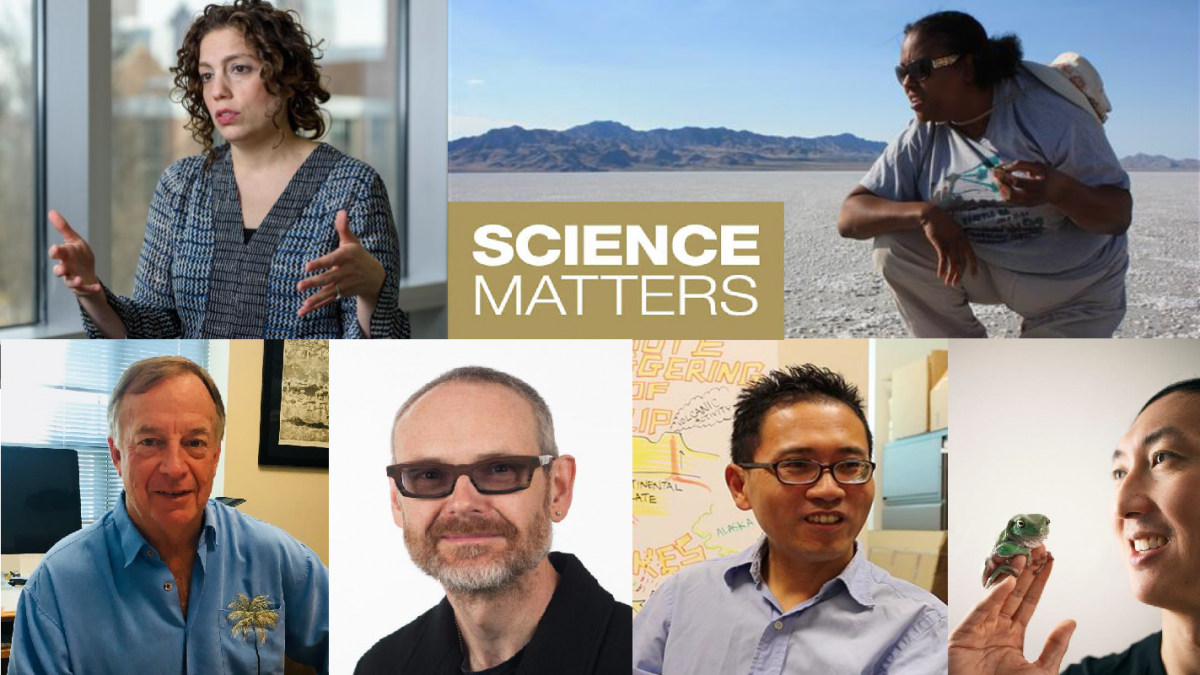
Download this episode
What is earthquake “music?” Can coral reefs devastated by climate change be saved? Does science support the supposed benefits of meditation? More tales of curiosity and discovery are coming in Season 2 of ScienceMatters, the podcast of the Georgia Tech College of Sciences.
(Upbeat music)
Hello, I’m Renay San Miguel, host of ScienceMatters, the podcast of the Georgia Tech College of Sciences.
We thank all of you who listened to our ScienceMatters Season 1 episodes in 2018. You heard our stories about the exciting research conducted by faculty and students at the six schools that make up the College of Sciences. Also, we’re grateful that you took part in special activities like our weekly quizzes about the podcasts. That allowed us to get to know you, and for you to get to know us!
We have more stories of discovery heading your way in Season 2. We’ll soon be dropping seven new binge-worthy episodes of ScienceMatters all at once.
Here’s a brief preview:
(Sound of “earthquake music”)
Renay San Miguel: That’s what an earthquake sounds like, thanks to new data analysis techniques from a professor in the School of Earth and Atmospheric Sciences.
Zhigang Peng says turning seismic data into sound can help us understand more about a largely still-undiscovered part of our planet: namely, what goes on beneath our feet.
Zhigang Peng: We can send satellites to the sky, we can send divers, but the deepest place we can go inside the Earth is no more than roughly about 10 kilometers. There’s a lot of things we don’t know.
(Upbeat music)
Renay San Miguel: Award-winning Professor Mark Hay, in the School of Biological Sciences, has been researching the world’s oceans for more than 30 years. He and his students’ latest work could help stem the effects of climate change on coral reefs.
For some areas of the world, it may be too late.
Mark Hay: I’m not working in the Caribbean anymore because I don’t think there are reefs in the Caribbean. Really, I mean, I’ve got kids that are in their early 30s, and when they were 20, I could not show them an average Caribbean reef of when they were born. I mean, it was just gone.
(Upbeat music)
Renay San Miguel: And glaucoma is normally associated with older people, but a form of the eye disease can affect children. That drives Professor Raquel Lieberman in the School of Chemistry and Biochemistry to study a specific protein that could hold clues to better treatment.
Raquel Lieberman: This disease affects a lot of people, and one to three million children worldwide is a large population. And I always believe children are our future, and we want them to be as healthy as possible.
(Upbeat music)
Renay San Miguel: Join us for season 2 of ScienceMatters, compelling stories of curiosity-driven research and discovery from Georgia Tech’s College of Sciences. Subscribe to our podcast at Apple or SoundCloud, and learn more at sciencematters-dot-gatech-dot-edu.
(Upbeat music)


